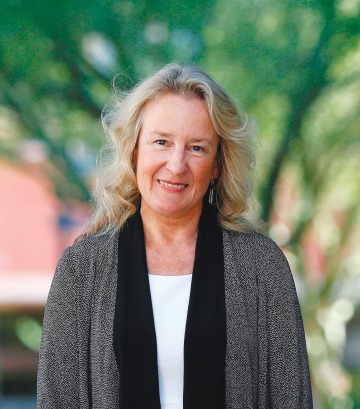UA Psychologist Elected to National Academy of Sciences
Our aging brains, as Carol Barnes has discovered, are surprisingly resilient. They can adapt, rewire, even reshape their 100 billion cells and 100 trillion synapses.
And now, her life’s work on normal aging, which virtually defined a new field in neuroscience, has earned her the highest U.S. honor for a scientist: membership in the National Academy of Sciences.
Barnes, University of Arizona Regents’ Professor of Psychology, was one of 84 new members elected recently to the academy, along with 21 foreign associates, in recognition of their distinguished achievements in original research. Barnes is the only new member from Arizona.
Barnes, who holds the UA’s Evelyn F. McKnight Chair for Learning and Memory in Aging, is internationally recognized for her groundbreaking research on how the brain changes during the course of normal aging and the consequences those changes have on memory and information processing.

Carol Barnes
Driven by the philosophy that scientists cannot fully understand age-associated brain disorders such as Alzheimer’s disease until they understand normal brain aging, her research involves a variety of behavioral, electrophysiological and molecular biological approaches to the study of the brain.
“Over the course of her remarkable career, Dr. Barnes has reshaped our understanding of the aging brain,” says UA President Robert C. Robbins. “She continues to do cutting-edge research that is fundamental to understanding how we can live longer and healthier lives, both physically and cognitively, and she has positioned the UA to be a worldwide leader in research on long-term human wellness. Dr. Barnes is a titan in her field, and I am very proud that she is being recognized in this way.”
“The election to the National Academy of Sciences is a great honor for me personally, especially because it indicates a scientific community-wide appreciation of the importance of understanding the neurobiology of brain aging and its impact on cognition,” says Barnes, who joined the UA Department of Psychology in 1990 and was named a Regents’ Professor in 2006.
“Of course, my election to the NAS would not have been possible without collaboration of many colleagues, students and support staff with whom I have had the good fortune to work with over more than 40 years,” she says.
Barnes co-founded the UA’s Division of Neural Systems, Memory and Aging, a dedicated research unit for the study of brain mechanisms of learning and their changes with age, which she continues to direct. She also is director of the UA’s Evelyn F. McKnight Brain Institute and a member of the UA’s BIO5 Institute.
Barnes has published hundreds of journal articles, has received numerous awards for her work and has been continuously funded for her research by the National Institute on Aging since 1982. She also is a longtime member and past president of the Society for Neuroscience, the largest body of scientists in the world who study the brain.
